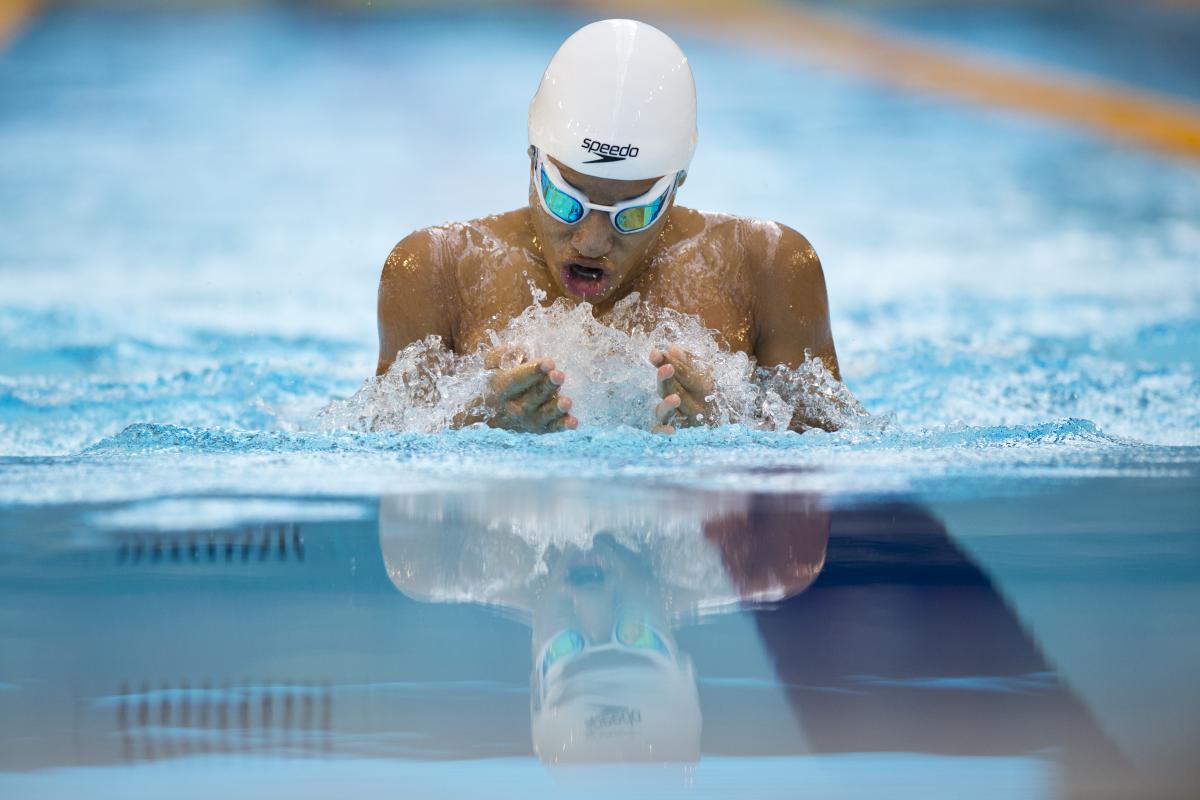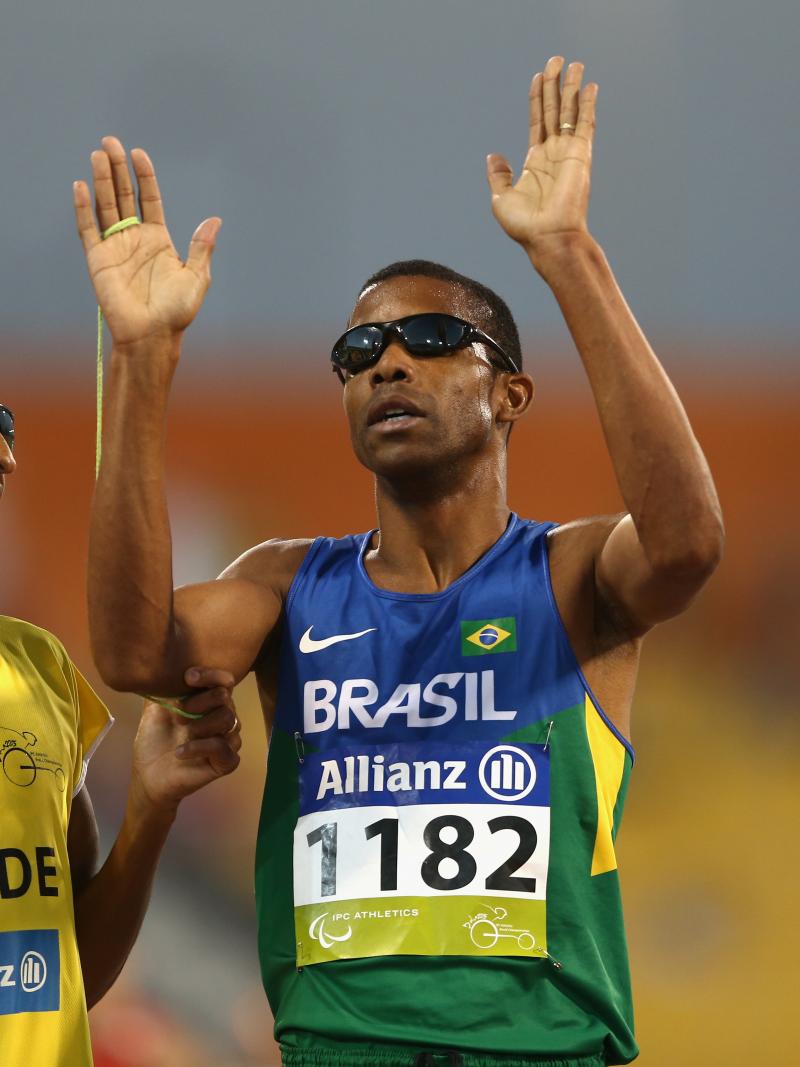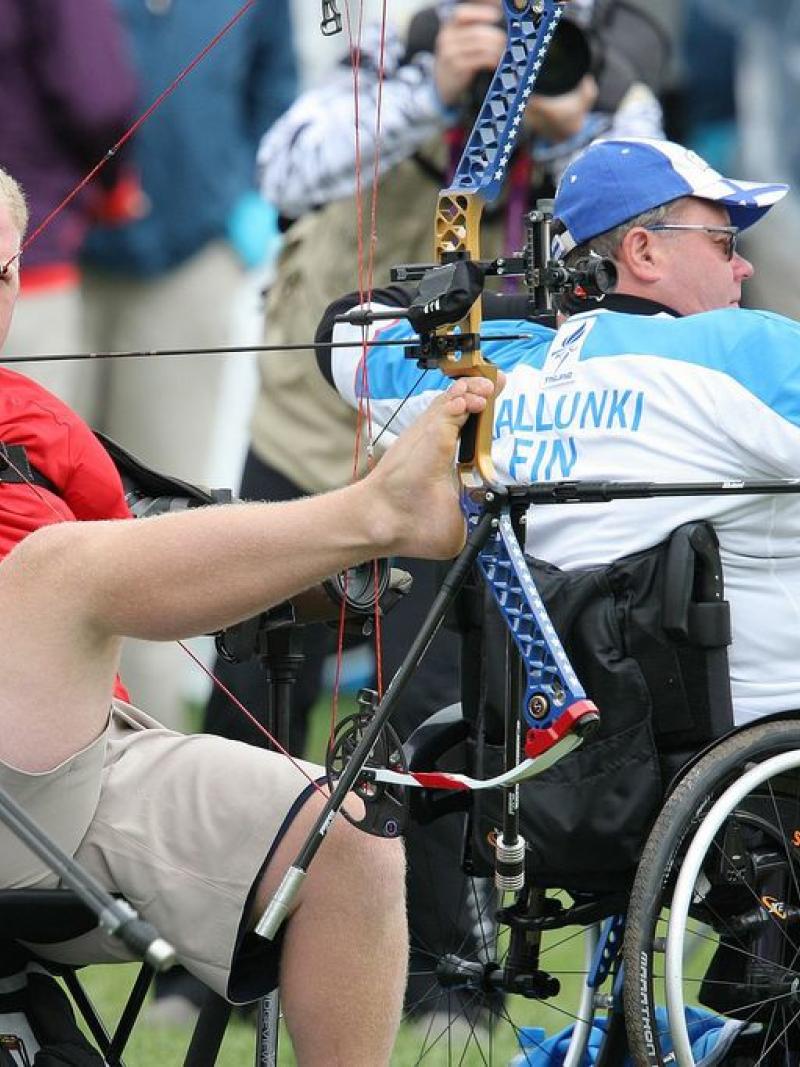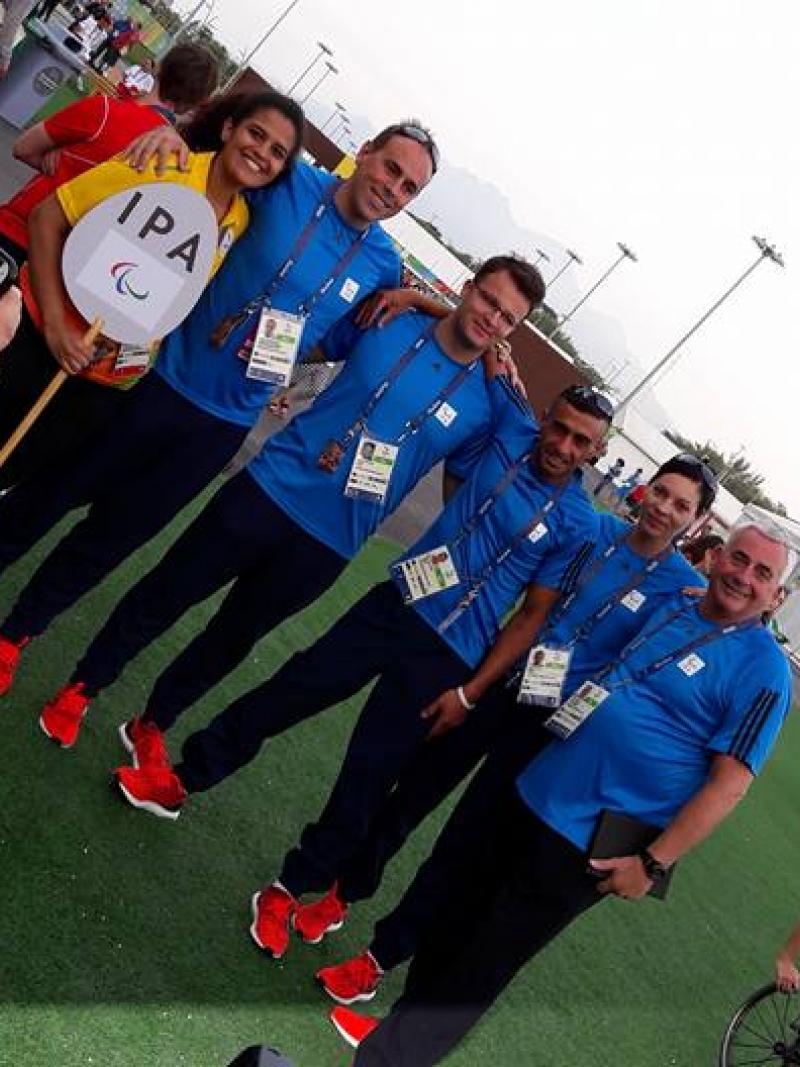Teenager Serrano aims to make history in Rio
Swimmer is targeting Colombia’s first Paralympic gold for more than three decades after sweeping aside his rivals in 2015. 05 Sep 2016
Carlos Serrano Zarate at the 2015 IPC Swimming World Championships in Glasgow, Great Britain.
By Rena Simkowitz
Colombian teenager Carlos Serrano will be one of the men to beat in the pool at Rio 2016 – just three years after his mum took him to his first swimming lesson.
The 18-year-old makes his Paralympic debut after an incredible 2015 in which he won gold in the 100m breaststroke SB7 at the World Championships in Glasgow and took five gold medals, all in Games-record times, at the Toronto Parapan American Games.
If he goes on to win gold in Rio, he would become the first Colombian to stand at the top of the podium in 36 years. In 1980, another swimmer, Pedro Mejia, won Colombia’s only Paralympic gold medal to date.
With the 2016 Games just days away, Serrano admitted he is both anxious and excited to be competing on the world’s biggest stage.
“It is my first Paralympics. There is great expectation to be among the best and I want to improve my marks,” said Serrano, who was named Allianz Athlete of the Month in April.
“The adrenalin when swimming, my determination to give each race everything I have, and my desire to win, I think is what makes me successful.”
It was only in 2013 that Serrano’s mother, Sandra Milena Zarate, signed up her son for a series of swimming classes. After the last class, the coach, Luis Carlos Calderon, invited Serrano to train with the Columbian national swimming team – which is comprised of Para and able-bodied athletes.
Shortly after beginning his formal training Serrano competed at the 2013 Parapan American Youth Games, where he won four gold medals.
“Winning four gold medals was such an exciting feeling and I was so happy to travel for my country,” said Serrano. “After that, I set new goals and dreams and decided to put all my strength into becoming a better swimmer.”
For the past three years, Serrano has continued to train with Calderon. During their time working together, Serrano has taken to heart his coach’s philosophy.
“The most useful piece of advice [Calderon] has given me is that it is in practice that the medals are won,” he said.
Serrano’s training regime is intense – he does two workouts a day, five days a week – including high-intensity swim workouts from 2-5pm and dry-land sessions on three days. On Saturdays, Serrano does more specialised speed work in the pool and Sunday is his day off.
But he also has to balance his training regime with his education. “I study virtually whenever I am not training,” he said.
Rio 2016 could see history made in the swimming pool after a combined 66 world records were broken across both the World and European Championships in 2015 and 2016 respectively.
Swimming has grown into one of the most challenging, exciting and popular sports on the Paralympic programme. It provides competition for athletes with physical, visual and intellectual impairments in 152 medal events.
Athletes compete for medals in freestyle, breaststroke, medley, backstroke and butterfly in distances ranging from the 50m sprint to the endurance test of the 400m.
Competition gets underway in the pool on 7 September.

 Facebook
Facebook
 Instagram
Instagram
 Twitter
Twitter
 Youtube
Youtube
 TikTok
TikTok
 Newsletter Subscribe
Newsletter Subscribe



